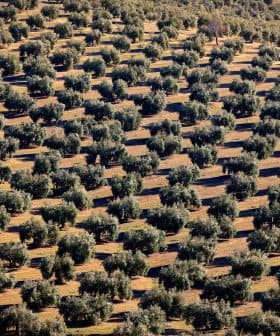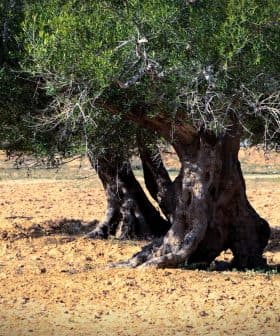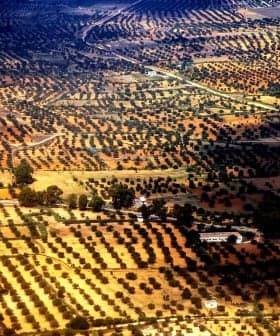Tunisian Olive Oil Production Down 55 Percent
Tunisia's drop in olive oil production is a further blow to the North African country which is already suffering an ailing economy, social unrest and security concerns.
 Sfax, Tunisia
Sfax, TunisiaTunisia’s olive oil production for the 2016/2017 season is estimated to be 100,000 tons, a significant drop from previous years, with 70,000 tons being exported. The decline in production is attributed to a severe drought in 2016, leading to failed crops and agricultural losses, as well as calls for a “thirst uprising” due to water shortages in the country.
As the Tunisian olive oil season draws to a close, Chokri Bayoudh, CEO of the National Oil Office (OHN) estimated the total production of olive oil from the 2016/2017 season will be 100,000 tons — a drop of 55 percent from Tunisia’s annual average of 180,000 tons and lower than 2015 predictions of 140,000 tons.
Exports of Tunisian olive oil from this season are estimated at 70,000 tons. 15,000 tons were exported from November to mid-December.
See Also:Complete Coverage of the 2016 Olive Harvest
Tunisia’s decline in olive oil production marks the country’s departure from its 2014/2015 ranking as the world’s second largest olive oil producer — a record-breaking season with yields estimated at between 280,000 to 300,000 tons and a four-fold increase over the previous year.
The drop in olive oil production is another blow to the North African country which is suffering from an ailing economy, social unrest and security concerns. In 2015, Tunisia’s tourism sector was severely hit by terrorist attacks and the country was handed a lifeline in the form of an EU deal that authorized duty-free imports of Tunisian olive oil.
Bayoudh attributed the decline in Tunisia’s olive oil production to the drought which gripped Tunisia during 2016.The country experienced one of its driest summers on record with a 28 percent decrease in rainfall compared to 2015. The drought resulted in failed crops and agricultural losses amounting to £700 million.
The government was accused of giving tourist areas and affluent parts of the capital priority for water and failing to maintain the water system. People in many parts of Tunisia suffered lengthy cuts to their water supplies and the country’s central agricultural districts were left to wither.
Olives were not the only victims of Tunisia’s 2016 water shortage. In July, then Minister of Agriculture, Water Resources and Fisheries, Saad Seddik declared that some Tunisians were living “below the water poverty line.”
Alaa Marzouki from Watchtower, the Tunisian citizen’s water observatory, claimed, “The state has not put in place the necessary strategies.” He estimated that 10 to 30 percent of the country’s water leaked from dilapidated pipes.
Faycal Tebbini who heads the Farmers Voice Political Party believes about five billion cubic meters of water which could be diverted for farming and residential use flows into the sea annually and 30 percent of reservoir water seeps from damaged pipes.
Tunisia’s water shortage fueled social tensions and evoked calls for a “thirst uprising.” In September, Tunisia’s Ministry of Religious Affairs called on people to “pray for rain.”
Tunisia’s prayers for precipitation were answered by torrential downpours in September and October which brought parts of Tunisia to a standstill. Several lives were lost in the floods and substantial damage occurred.
Bayoudh is optimistic that this winter’s heavy rainfall will help Tunisia’s olive oil production return to its national average for the 2017/2018 season. He also highlighted the fact that exports of packaged olive oil have increased from 2,000 tons ten years ago to 20,000 tons today.
When questioned over the higher prices domestic consumers are paying for olive oil, Bayoudh blamed the drop in domestic production and the increased amounts of olive oil being exported.
Around 80 percent of Tunisia’s olive goes to exports.
In 2009, the World Bank issued a warning that Tunisia was likely to face a water resource risk. The World Resources Institute also predicted that Tunisia will become one of the 33 most-water-stressed countries in 2040. Tunisia has nine new reservoirs and desalination plants in the pipeline.









